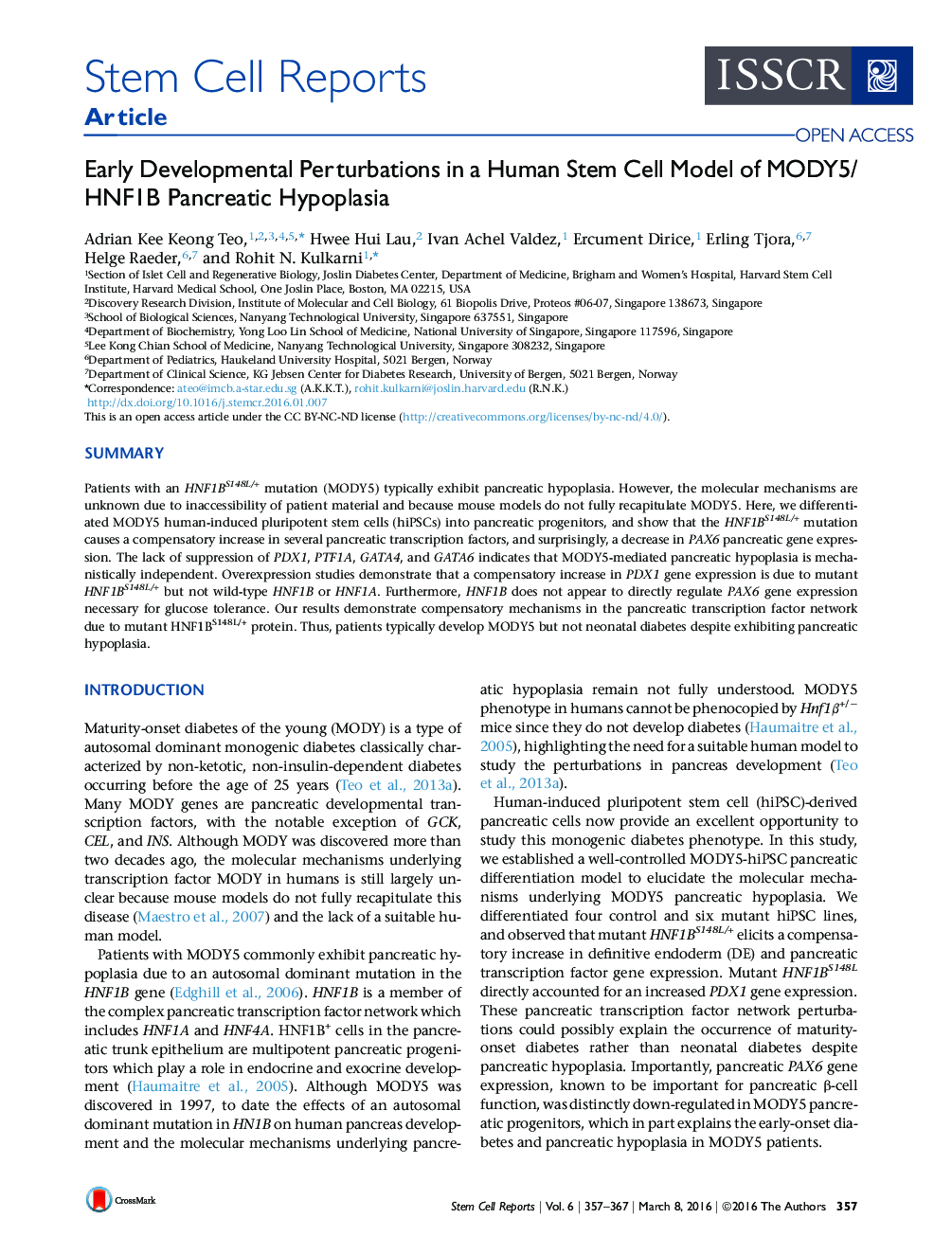| کد مقاله | کد نشریه | سال انتشار | مقاله انگلیسی | نسخه تمام متن |
|---|---|---|---|---|
| 2093310 | 1081952 | 2016 | 11 صفحه PDF | دانلود رایگان |

• HNF1BS148L/+ mutation elicits a compensatory increase in DE and pancreatic genes
• MODY5-mediated pancreatic hypoplasia is independent of PDX1, PTF1A, GATA4, and GATA6
• HNF1BS148L mutation directly causes a compensatory increase in PDX1 gene expression
• HNF1BS148L/+ mutation limits PAX6 expression and consequently leads to MODY5
SummaryPatients with an HNF1BS148L/+ mutation (MODY5) typically exhibit pancreatic hypoplasia. However, the molecular mechanisms are unknown due to inaccessibility of patient material and because mouse models do not fully recapitulate MODY5. Here, we differentiated MODY5 human-induced pluripotent stem cells (hiPSCs) into pancreatic progenitors, and show that the HNF1BS148L/+ mutation causes a compensatory increase in several pancreatic transcription factors, and surprisingly, a decrease in PAX6 pancreatic gene expression. The lack of suppression of PDX1, PTF1A, GATA4, and GATA6 indicates that MODY5-mediated pancreatic hypoplasia is mechanistically independent. Overexpression studies demonstrate that a compensatory increase in PDX1 gene expression is due to mutant HNF1BS148L/+ but not wild-type HNF1B or HNF1A. Furthermore, HNF1B does not appear to directly regulate PAX6 gene expression necessary for glucose tolerance. Our results demonstrate compensatory mechanisms in the pancreatic transcription factor network due to mutant HNF1BS148L/+ protein. Thus, patients typically develop MODY5 but not neonatal diabetes despite exhibiting pancreatic hypoplasia.
Graphical AbstractFigure optionsDownload as PowerPoint slide
Journal: - Volume 6, Issue 3, 8 March 2016, Pages 357–367